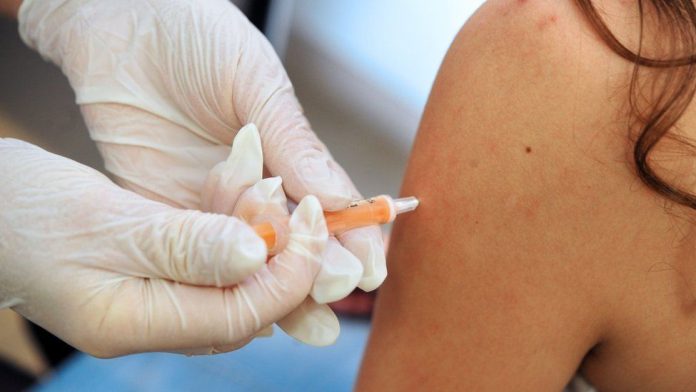The Joint Committee on Vaccination and Immunisation (JCVI) has proposed the inclusion of a vaccine against varicella, commonly known as chickenpox, in the routine childhood immunisation programme in the UK. The recommended vaccine would be administered in two doses, at 12 and 18 months of age. The JCVI has submitted its suggestions to the Department of Health and Social Care (DHSC), which will make the final decision on the program’s implementation.
The committee also suggests a temporary catch-up programme for older children as part of the initial rollout. The COVID-19 pandemic led to a significant reduction in chickenpox cases due to social restrictions, leaving a larger pool of children without immunity. The catch-up programme aims to provide protection against potential severe complications in later childhood or adulthood.
If approved, this recommendation would align the UK with other countries, such as Germany, Canada, Australia, and the United States, where routine varicella vaccination has shown substantial decreases in cases and related hospitalizations.
Chickenpox, caused by the varicella zoster virus, is highly infectious and primarily affects children but can be contracted at any age. While most cases are mild, complications can arise, including bacterial infections and, in rare instances, serious conditions like encephalitis, pneumonitis, and stroke. Infants under four weeks old, adults, and pregnant women are at higher risk of severe illness.
Professor Sir Andrew Pollard, Chair of the JCVI, emphasizes the potential positive impact on public health, citing evidence from countries like the USA that have successfully implemented similar programs over decades.
Dr. Gayatri Amirthalingam, Deputy Director of Public Health Programmes at the UK Health Security Agency (UKHSA), supports the recommendation, stating that introducing the vaccine could prevent severe cases and align the UK with other countries with established vaccination programs.
In 2009, the JCVI had dismissed a national program due to concerns about a potential increase in shingles cases among middle-aged adults. However, recent studies and evidence have challenged this notion, paving the way for the current recommendation. DHSC ministers will review the recommendations before making policy decisions on the potential new immunisation programme.















